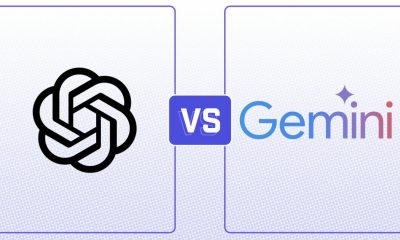Finance
Equidate, a service for letting startup employees cash out equity, names new CEO


On Wednesday, Equidate announced Kelly Rodriques as its
new CEO.
Equidate
-
Startups are staying private longer, leaving employees
with thousands or millions of dollars of untapped compensation
in the form of company equity. -
That’s where Equidate comes in. Employees or early
investors can sell their company shares on the private market
to investors who want a piece of the pie. -
Equidate has grown 300% year-over-year as more employee
look to liquidate equity. -
On Wednesday, the startup announced a new CEO, veteran
executive and investor Kelly Rodriques, who is tasked with
growing the startup and expanding its reach
internationally.
Four months before Spotify went public in
an unusual direct listing, $150 million of shares in the
music streaming service were privately placed by a little-known
startup called Equidate.
Equidate, a platform that helps startup employees sell their
private equity, has picked up steam since its founding in 2014.
As startups have started to stay private longer, employees and
early investors have turned to the platform as a way to cash in
on their equity.
On Wednesday, the company announced a new CEO to scale the
company and expand its offerings internationally.
Kelly Rodriques, general partner at Operative Capital and an
investor in Equidate, will take over the role of CEO from
Equidate’s co-founders, Sohail Prasad and Samvit Ramadurgam.
Prasad and Ramadurgam will stay on at Equidate as
co-presidents.
“I looked all around the country
for a firm that was in this space that had phenomenal technology
and great talent, and that’s what led me to Equidate,” said
Rodriques, who first met the founders last year when they
fundraised for a Series B.
The company raised $50 million in
that round, announced at the end of July, which valued the
company at $220 million, according to PitchBook. The round was
led by Financial Technology Partners and Panorama Point Partners,
as well as Rodriques’ firm, Operative Capital.
The funding and executive shift
come at a time of growth at the startup. The company said its
transaction volume has consistently grown 300% year-over-year,
and that the company is already profitable. It currently has a
run rate of $1 billion in transactions, 40% of which is sourced
internationally.
Though Rodriques has focused on
investing in recent years, it’s not his first time at the helm.
He led the investment custodian company PENSCO for more than six
years before its acquisition in 2017, and was CEO and chairman of
the software company Totality before its acquisition in
2006.
Startups are staying private longer, so employees are
stuck

Spotify CEO Daniel Ek took
the company public in an unusual direct listing in April. Before
that, Equidate placed $150 million in Spotify
equity.
Andrew Burton / Getty
Images
Equidate aims to solve a growing problem in Silicon Valley.
Venture-backed startups are staying private longer, which means
employees with thousands — and sometimes millions — of dollars of
compensation in equity are stuck without liquidity, or access to
payment in cash.
Sure, equity in a company like Uber could be worth a lot more
once it starts trading on the public markets. But it’s hard to
buy a house or send your kids to college with shares of a
9-year-old company that was expected to go public two years
ago.
Now, as companies find it increasingly strategic to stay private
longer, they have started working with companies like Equidate
directly. It’s almost like an employee benefit, Rodriques said.
“Previously it might have been a handful of employees or maybe a
senior executive who wanted to sell. What you’re now starting to
see beyond the onesie twosie sellers, you’re starting to see the
companies themselves now organize a liquidity program,” he
said.
Despite customer demand, the employee liquidity space is still
pretty young. Equidate’s biggest competitor, according to
Rodriques, is a startup called EquityZen, which works primarily
with employees selling equity in smaller startups.
Equidate, however, focuses primarily on the top 200 largest
private companies, he said.
The buyer pool is shifting too. Historically, Equidate has worked
mainly with high net-worth investors. But increasingly, banks and
institutions are drawn into the promise of private
investments and see no reason to wait until shares are trading on
the public markets at a higher valuation.
In theory, less wealthy individuals can also buy equity through
Equidate, he said, but currently they have to do it through an
accredited investor or be accredited themselves.
Down the line, however, Rodriques said he expects Equidate will
release new products and features that put private equity in the
hands of smaller investors as well.
-

 Business7 days ago
Business7 days agoTesla drops prices, Meta confirms Llama 3 release, and Apple allows emulators in the App Store
-

 Business6 days ago
Business6 days agoTechCrunch Mobility: Cruise robotaxis return and Ford’s BlueCruise comes under scrutiny
-

 Entertainment6 days ago
Entertainment6 days ago‘The Sympathizer’ review: Park Chan-wook’s Vietnam War spy thriller is TV magic
-

 Business4 days ago
Business4 days agoTesla layoffs hit high performers, some departments slashed, sources say
-

 Business5 days ago
Business5 days agoMeta to close Threads in Turkey to comply with injunction prohibiting data-sharing with Instagram
-

 Entertainment4 days ago
Entertainment4 days agoChatGPT vs. Gemini: Which AI chatbot won our 5-round match?
-

 Business3 days ago
Business3 days agoFormer top SpaceX exec Tom Ochinero sets up new VC firm, filings reveal
-

 Business4 days ago
Business4 days agoTesla layoffs hit high performers, some departments slashed, sources say






















